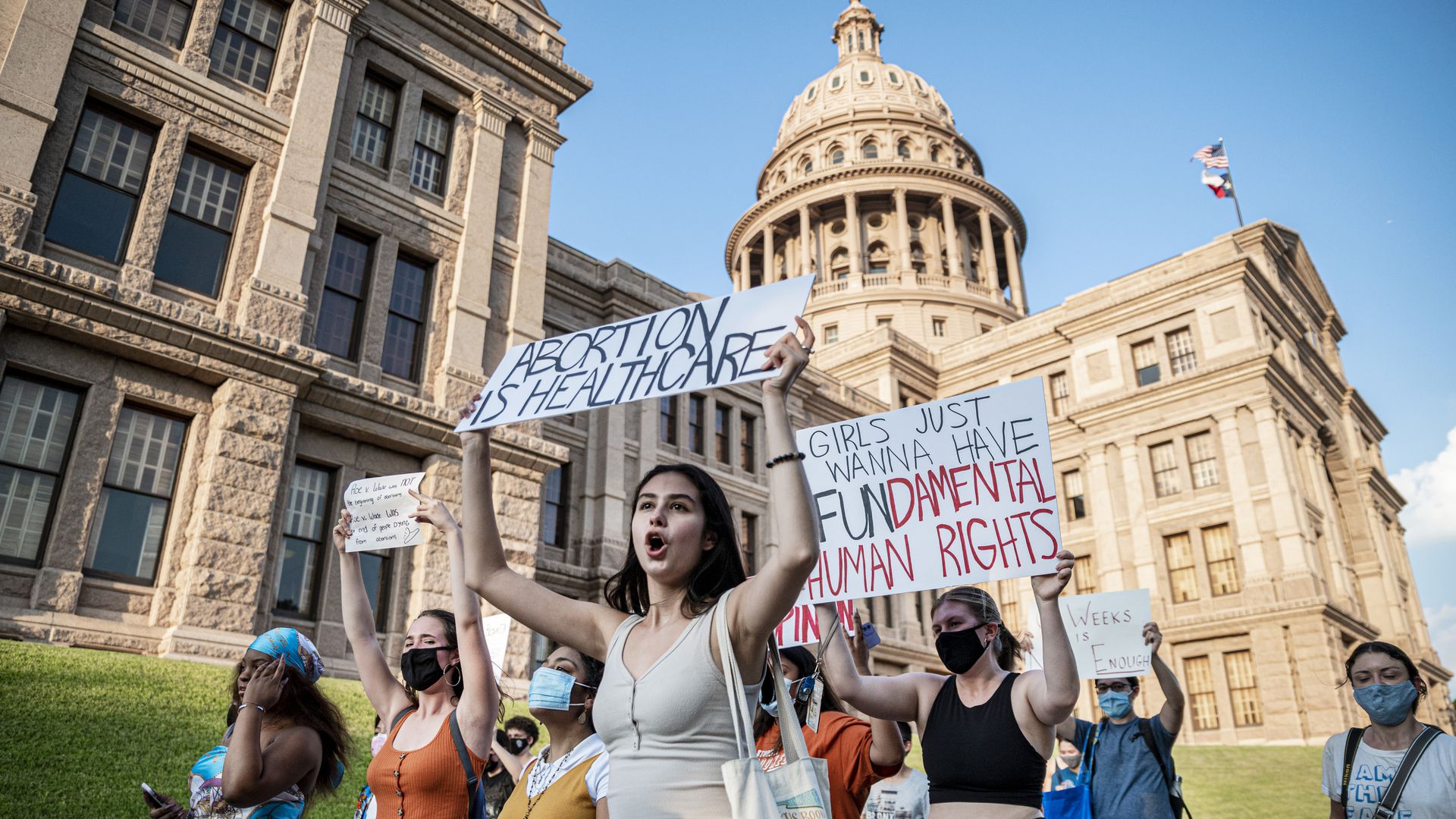Ivana Saric
September 6, 2021
-Axios
The Justice Department will “protect those seeking to obtain or provide reproductive health services” in Texas as it explores options to challenge the state’s abortion ban, U.S. Attorney General Merrick Garland said in a statement Monday.
Driving the news: The announcement comes after the Supreme Court allowed the law to take effect last week. The ban is the most restrictive abortion law to be enforced since the Supreme Court’s 1973 Roe v. Wade decision legalized abortion nationwide.
- The Texas law bans all abortions, including in cases of rape and incest, after the detection of cardiac activity, which is usually around six weeks — before many people know they are pregnant.
- It also allows individuals to sue anyone suspected of helping a woman obtain an abortion — and awards at least $10,000 to people who do so successfully.
- The law is difficult to challenge partly because it’s unclear who can be sued since it deputizes private citizens to enforce it.
The big picture: Garland said the department “will continue to protect those seeking to obtain or provide reproductive health services pursuant to our criminal and civil enforcement” of the Freedom of Access to Clinic Entrances Act.
- The FACE Act bans physical obstruction or threat of force that “injures, intimidates, or interferes” with a person seeking or providing reproductive health services. It also prohibits property damage against reproductive health centers.
- “The department will provide support from federal law enforcement when an abortion clinic or reproductive health center is under attack,” Garland said.
- The department has already contacted U.S. Attorneys’ Offices and FBI field offices in Texas to discuss enforcement authorities, he added.
The bottom line: “We will not tolerate violence against those seeking to obtain or provide reproductive health services, physical obstruction or property damage in violation of the FACE Act,” Garland said.




